I glanced at the Ball jar without giving it much thought. Our guests were due in less than 30 minutes. While I’d busied myself with putting the house in order and getting a jump on dinner preparations, the possibility of a butterfly hatch had drifted into the background. But there he was, wriggling around in a too-small container that, a short while before, had only needed room for two, bumpy chrysalides.
The first one to emerge could not have been there long; he was still unready to fly. My mate and I enjoyed his company long enough to get some glamour shots and admire his magnificence before transferring him to a thicket of orange cosmos, where he was well camouflaged, to dry his wings in preparation for launch.
The friends we’d not seen in years, a mélange of homemade pizzas, and story upon story filled us with a different kind of joy across the next many hours. After our meal, we migrated outside to savor the light of a small fire and pass around pieces of giant chocolate chip cookies, the wafers of our social communion.
Sated emotionally and physically, we left our places under the stars to make our way back inside, passing the flower beds on our way through dew-laden grass. The butterfly was still there, where we’d left him before the sun went down, dangling like a forgotten ornament. He seemed so much more fragile now, so defenseless, his damp wings and plump abdomen exposed to the restless creatures of the night.
To hide from would-be prey, butterflies sleep on the undersides of leaves. Ours needed a safer place to ride out the darkness. I scooped him, gingerly, onto my fingers and eased him off again to the bottom of a sweet potato leaf a few feet away.
From the moment he emerged, a process called eclosion, I’d offered him words of appreciation and encouragement. This time I added a quiet prayer for protection.
He was still on the potato vine the next morning, perched topside with little movement. Worry set in. Why hadn’t he flown already? Was he injured? Too weak? I’ve taken part in these captive metamorphoses many times in the past, possibly without enough regard for potential pitfalls, but I’d never known a butterfly to linger more than a few hours. I reached for him again, and he stepped willingly onto my hand.
To feed a butterfly, I read, soak a paper towel in a solution of one-part honey and ten-parts water. Nectaring, they called it, an easy next step. But, full sunlight somehow felt equally important. Perhaps his wings were still soggy. Walking with him to a patch of yard where the morning rays angled away from the shadows of houses and trees, I aimed my little friend’s open wings toward the glow. Soon, his front legs skimmed his head in a cleaning motion. Twice more this happened, and I while I don’t have sufficient command of insect behavior to be sure, I was encouraged by what appeared to be signs of normal activity.
Moments later, he lifted off and flew, in that whimsical, non-linear manner so utterly butterfly. I let go a little cheer as he cleared the rooftops and disappeared from view.
His jar-mate—and sister, it turned out—waited another two days to show herself. I watched carefully, noticing the changes of color as the hard casing of her chrysalis grew more transparent, her black wings becoming visible on the inside. The eclosion happened in the 20 minutes I was outside watering potted plants, but my absence made it no less miraculous. In fact, the opposite. My eyes were not needed at her transcendent moment.
Butterflies remind us that transition, while challenging, is not just possible and necessary, but also the most beautiful opportunity for us to reach our full potential. And, isn’t it just like us to see our human struggles in this process?
But, what of the caterpillar and the butterfly it becomes? To go from crawling juvenile to winged adult, one life literally liquifies, dissolves, reorganizes, and recreates itself into a totally different form, one with breathtaking, scale-covered wings that allow it to fly.
I doubt these insect-beings see themselves in us humans. But, if they do, I hope they believe in our ability to change. And, I hope they’re right.
~Elizabeth
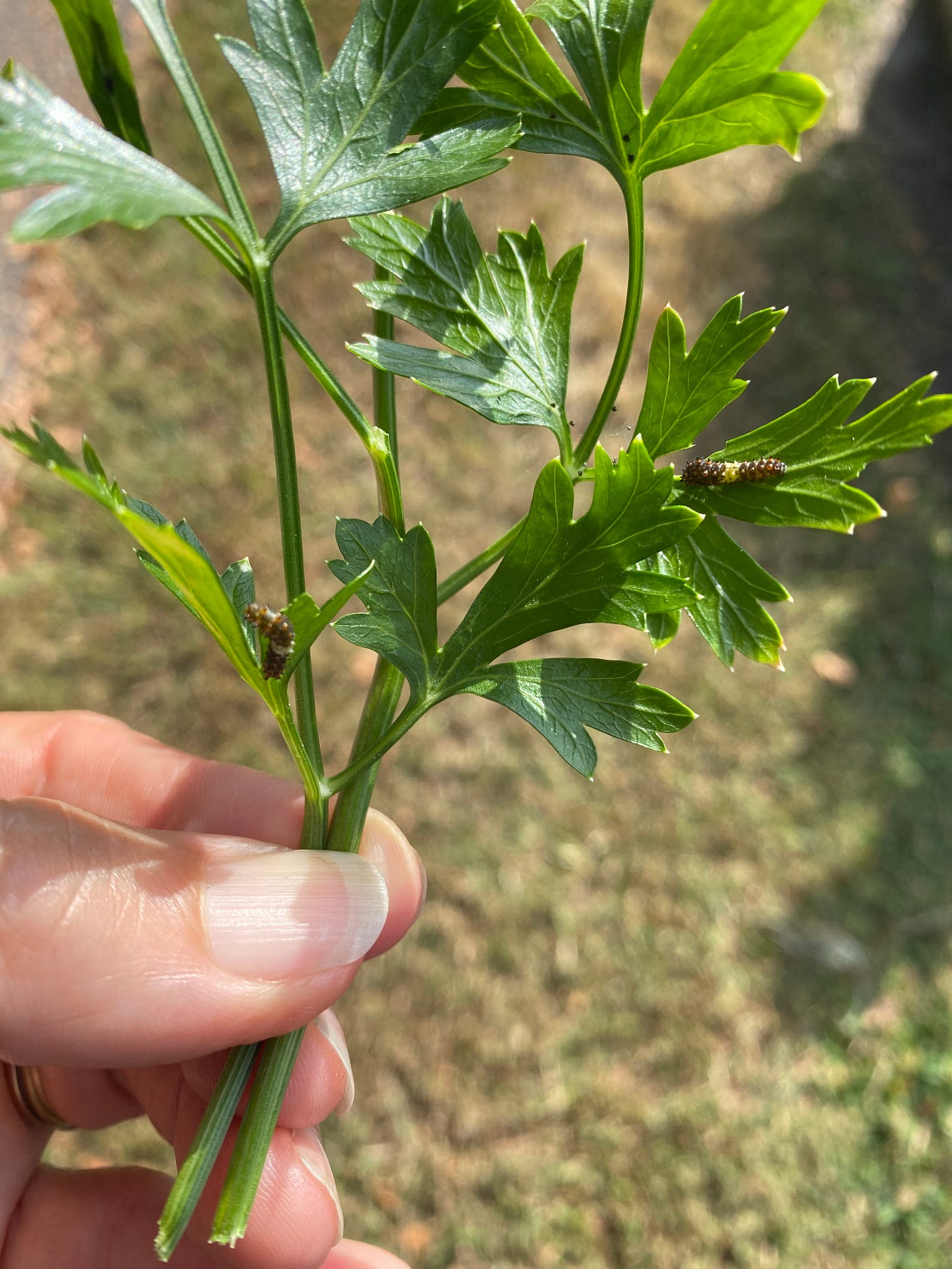




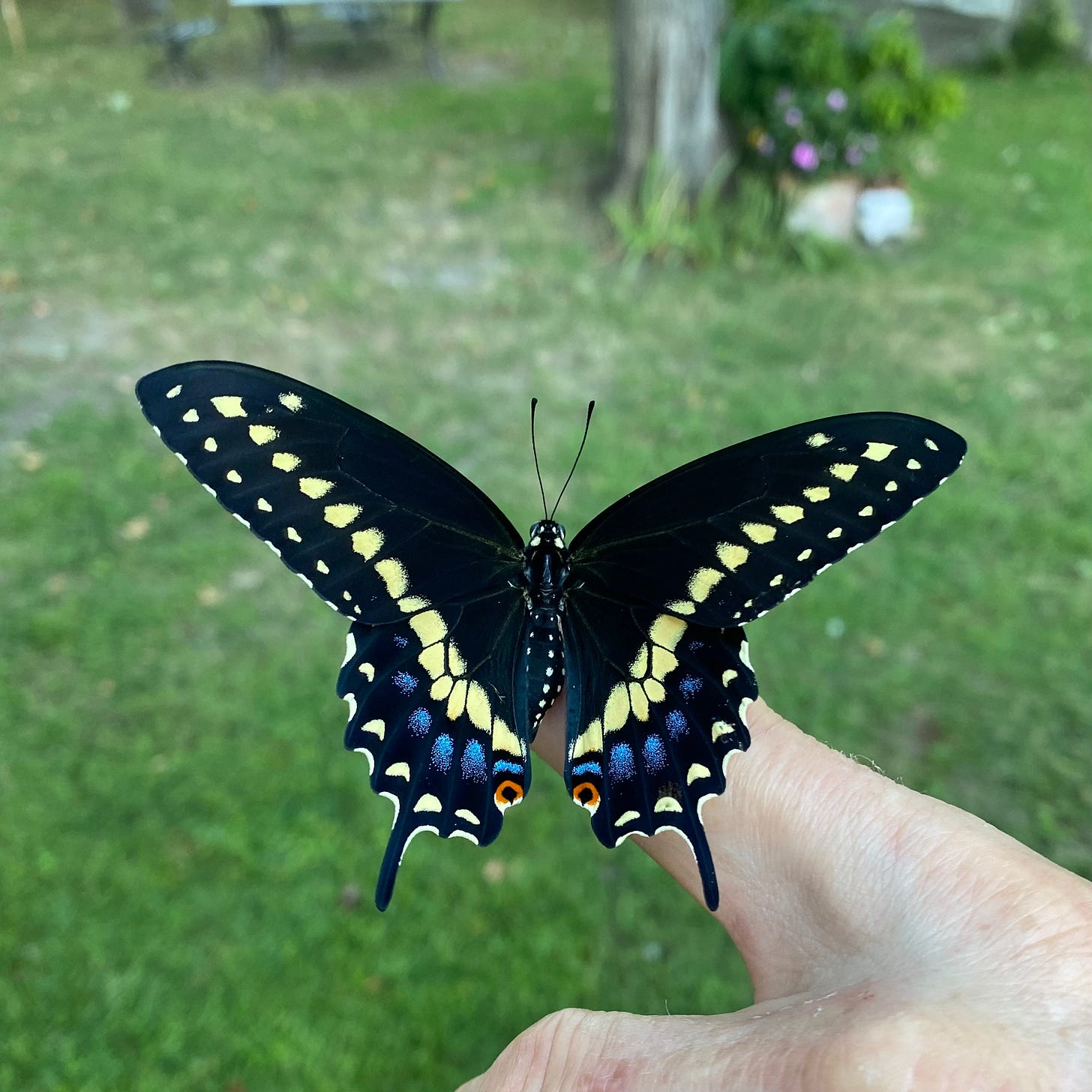
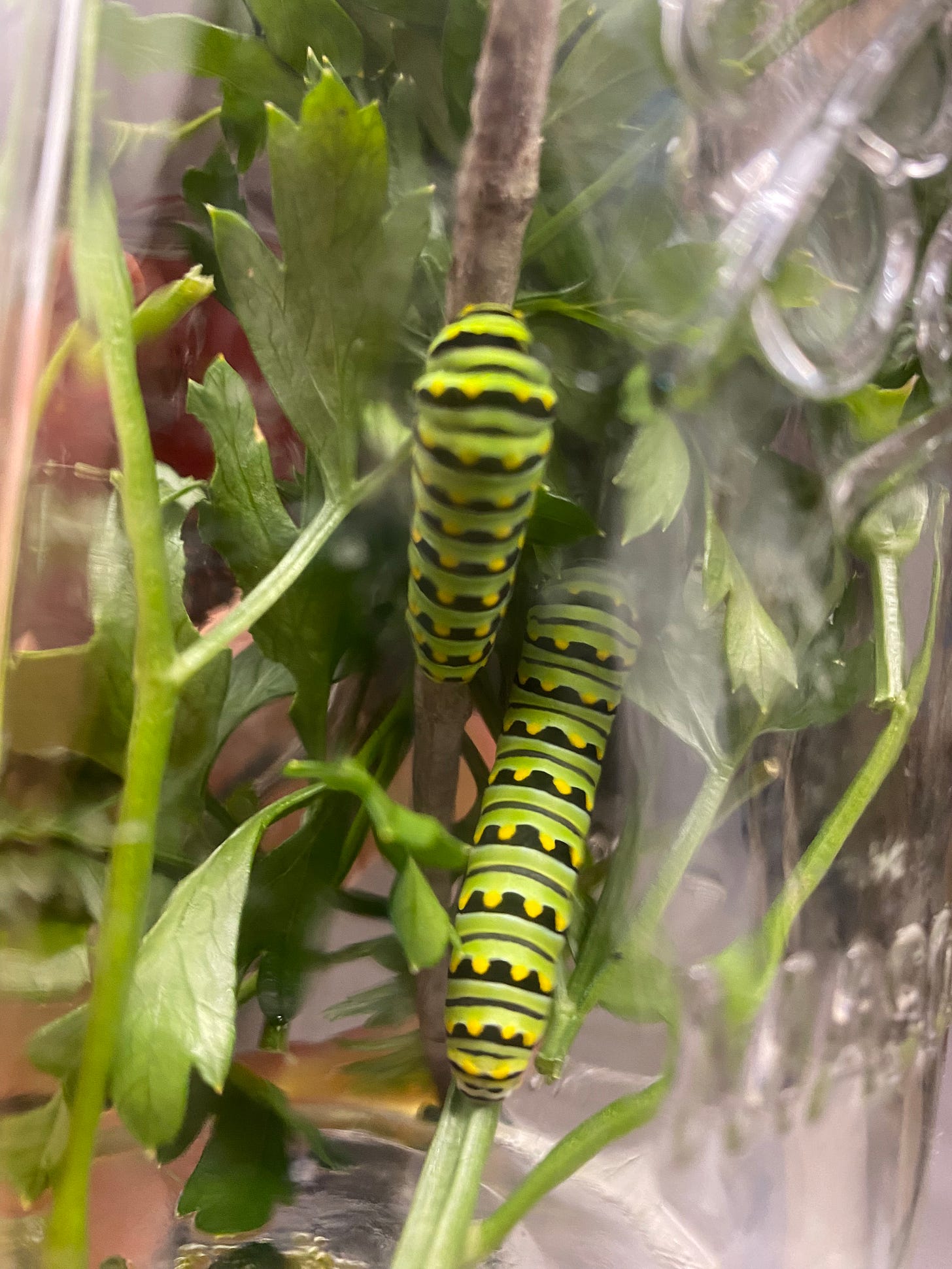
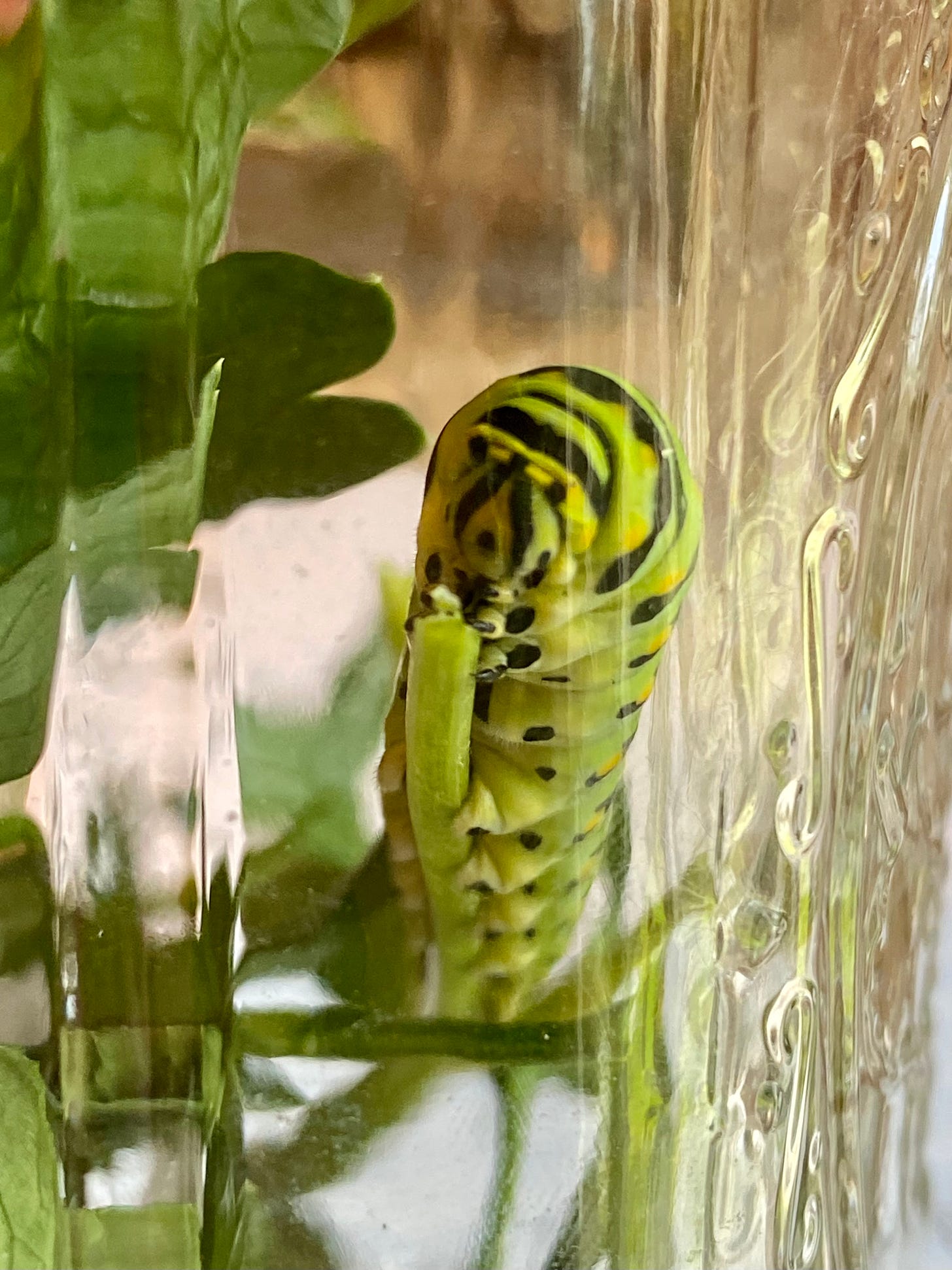
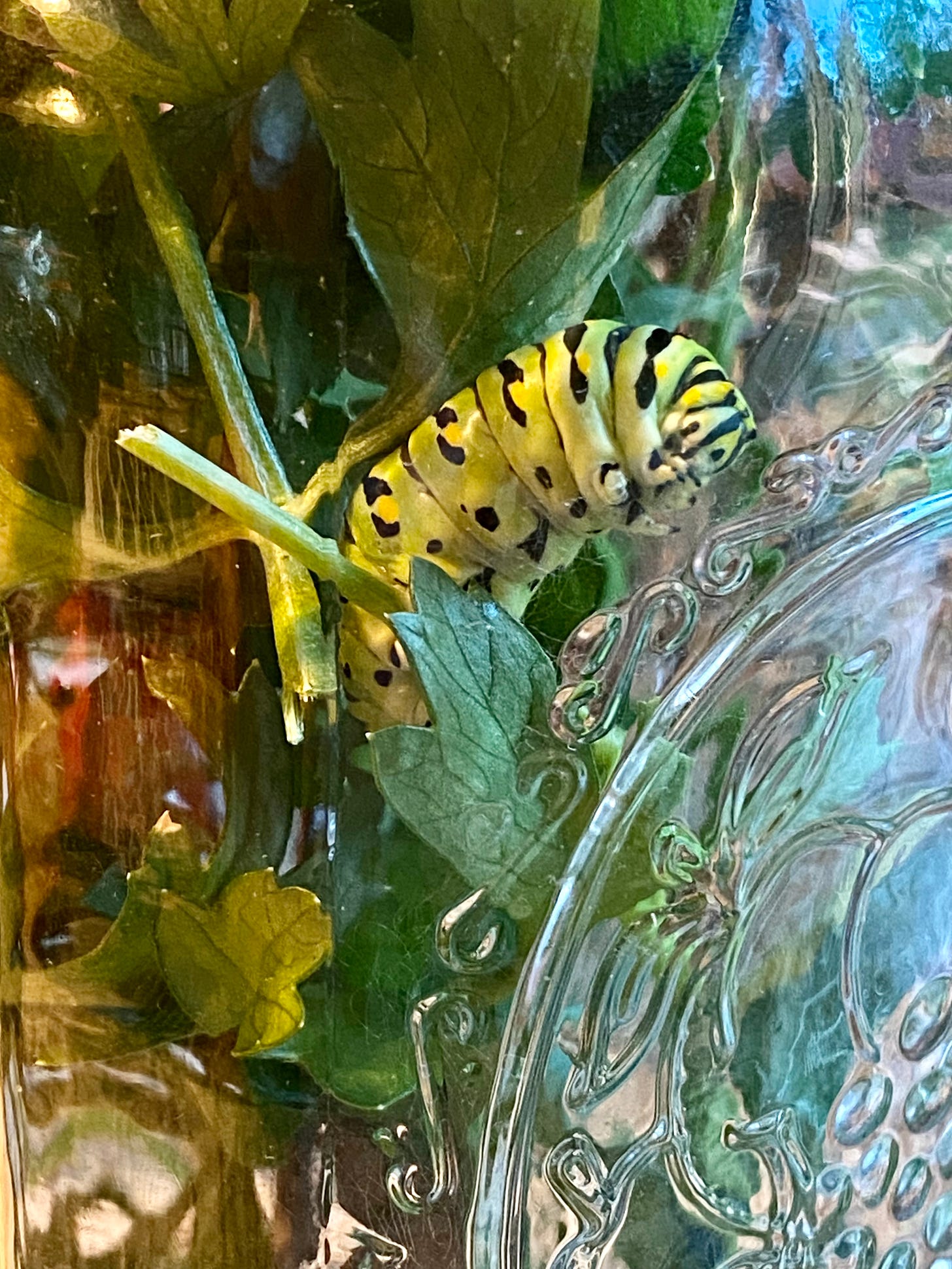
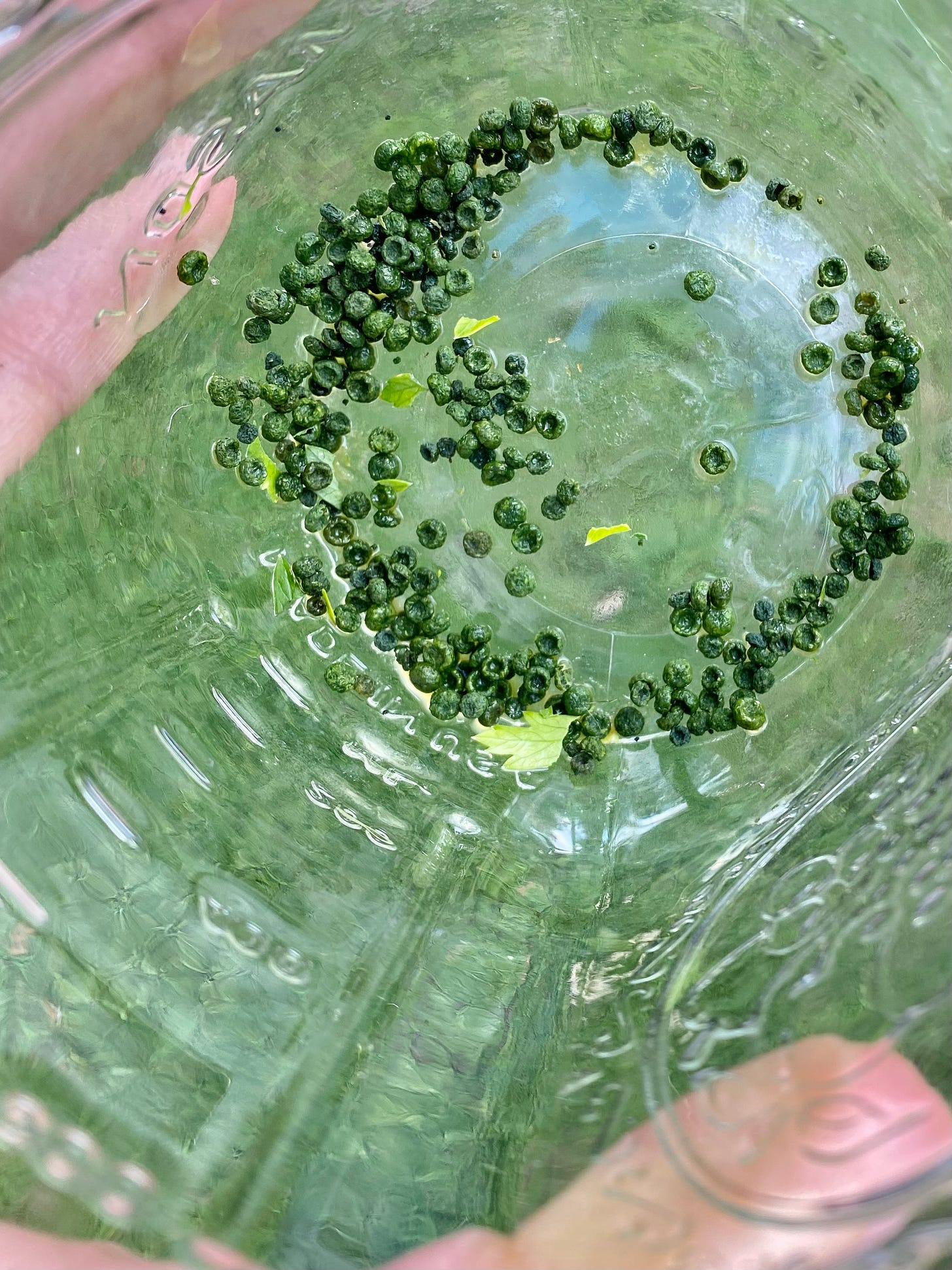
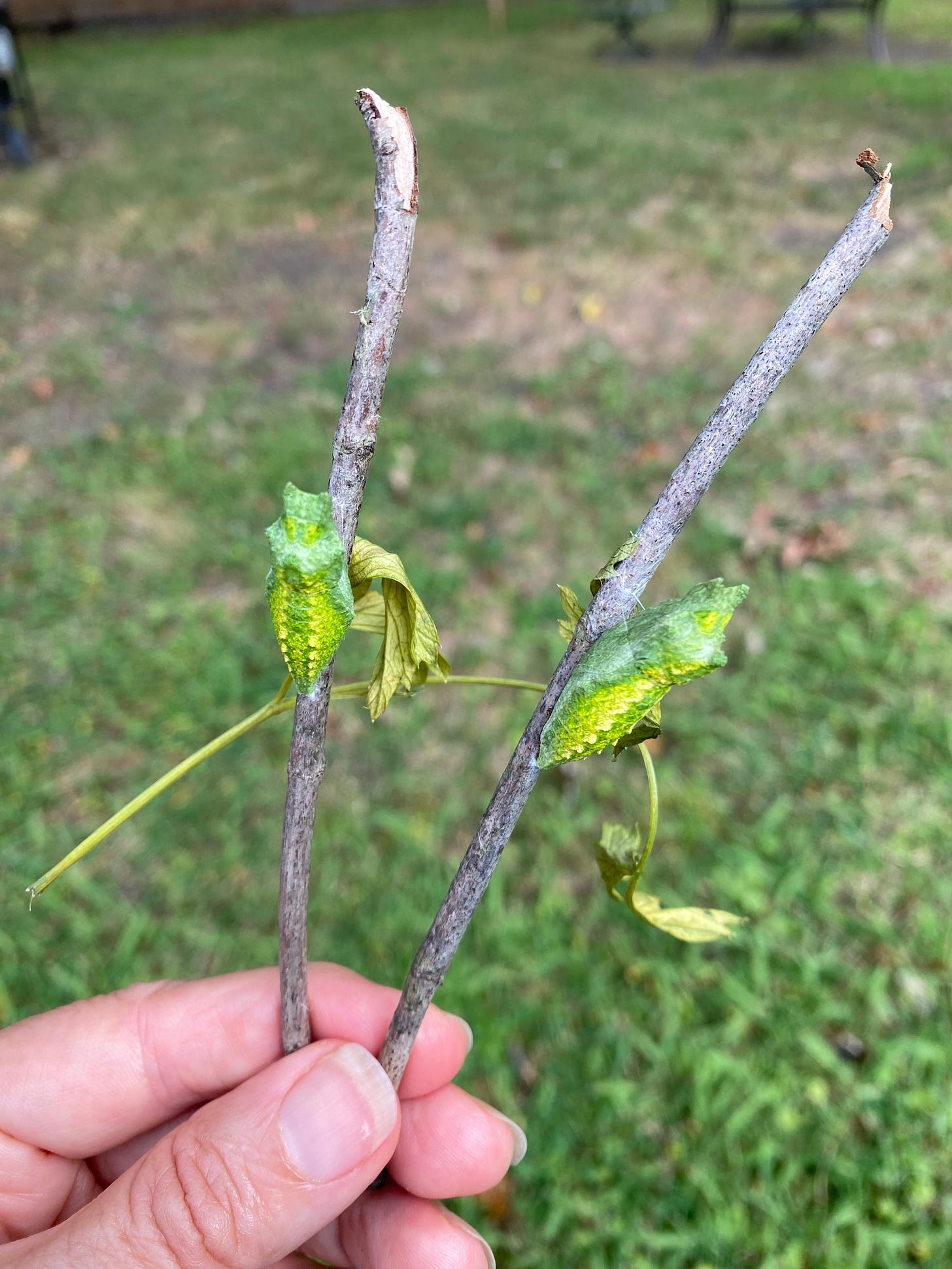
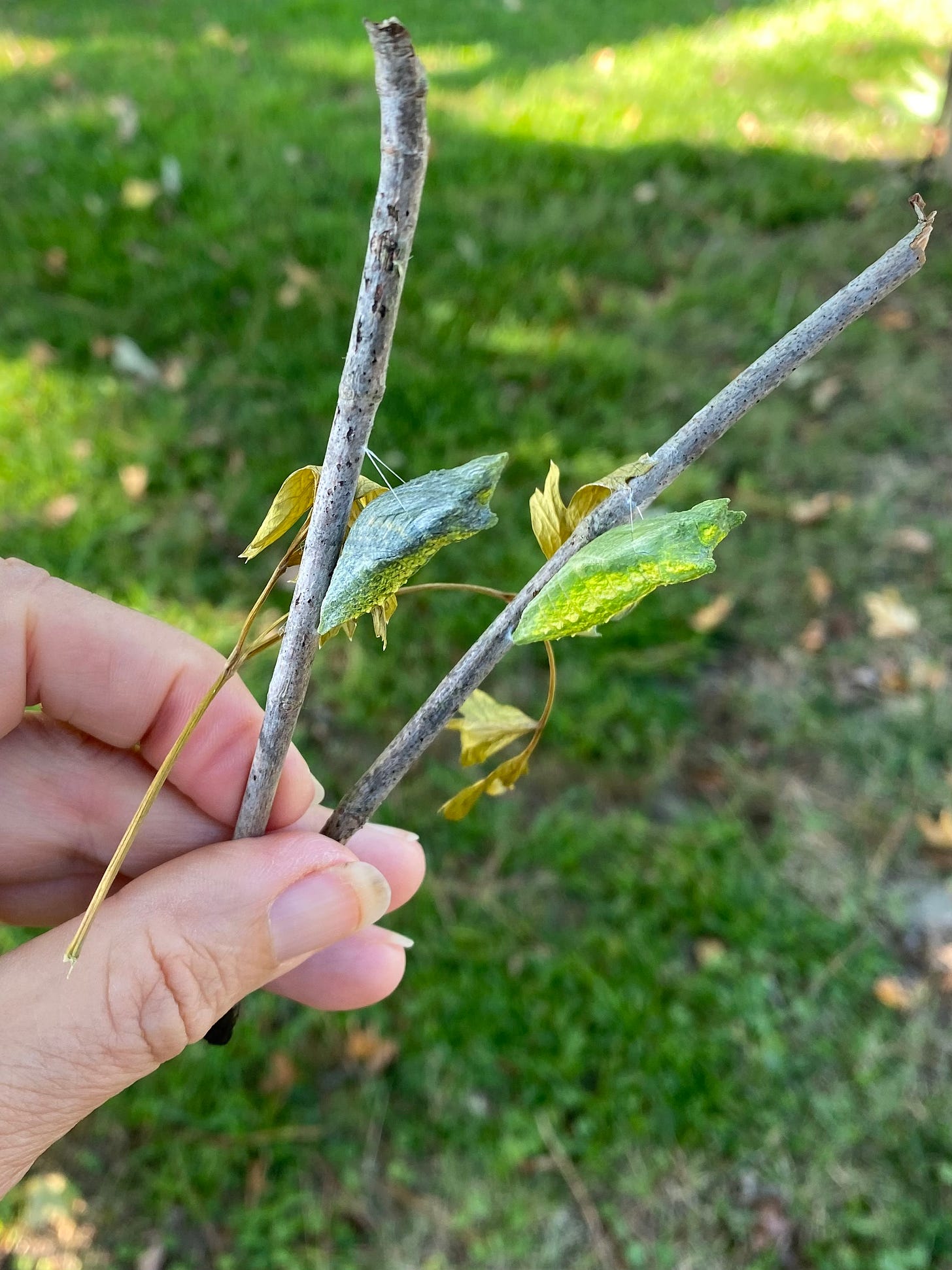
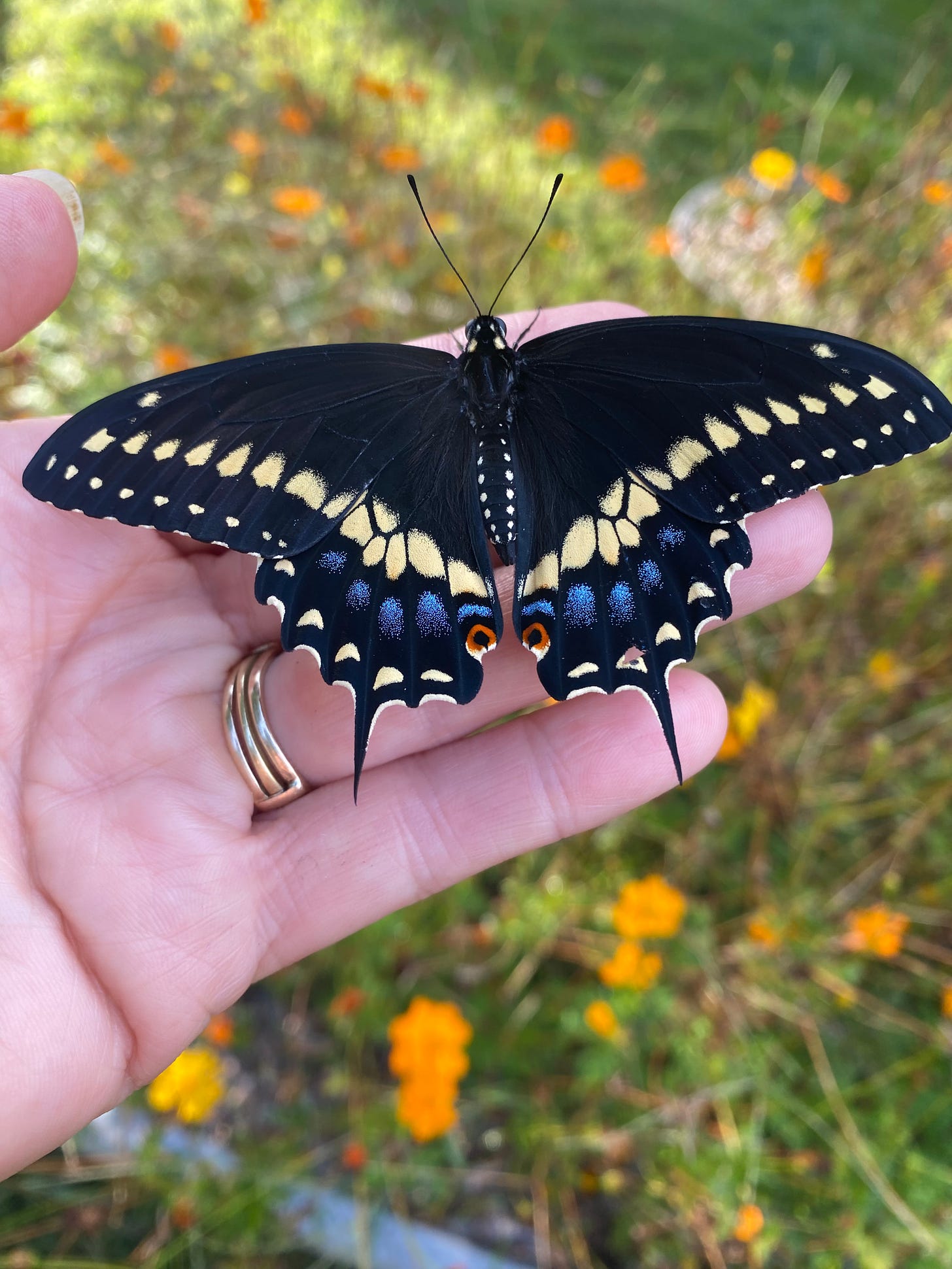
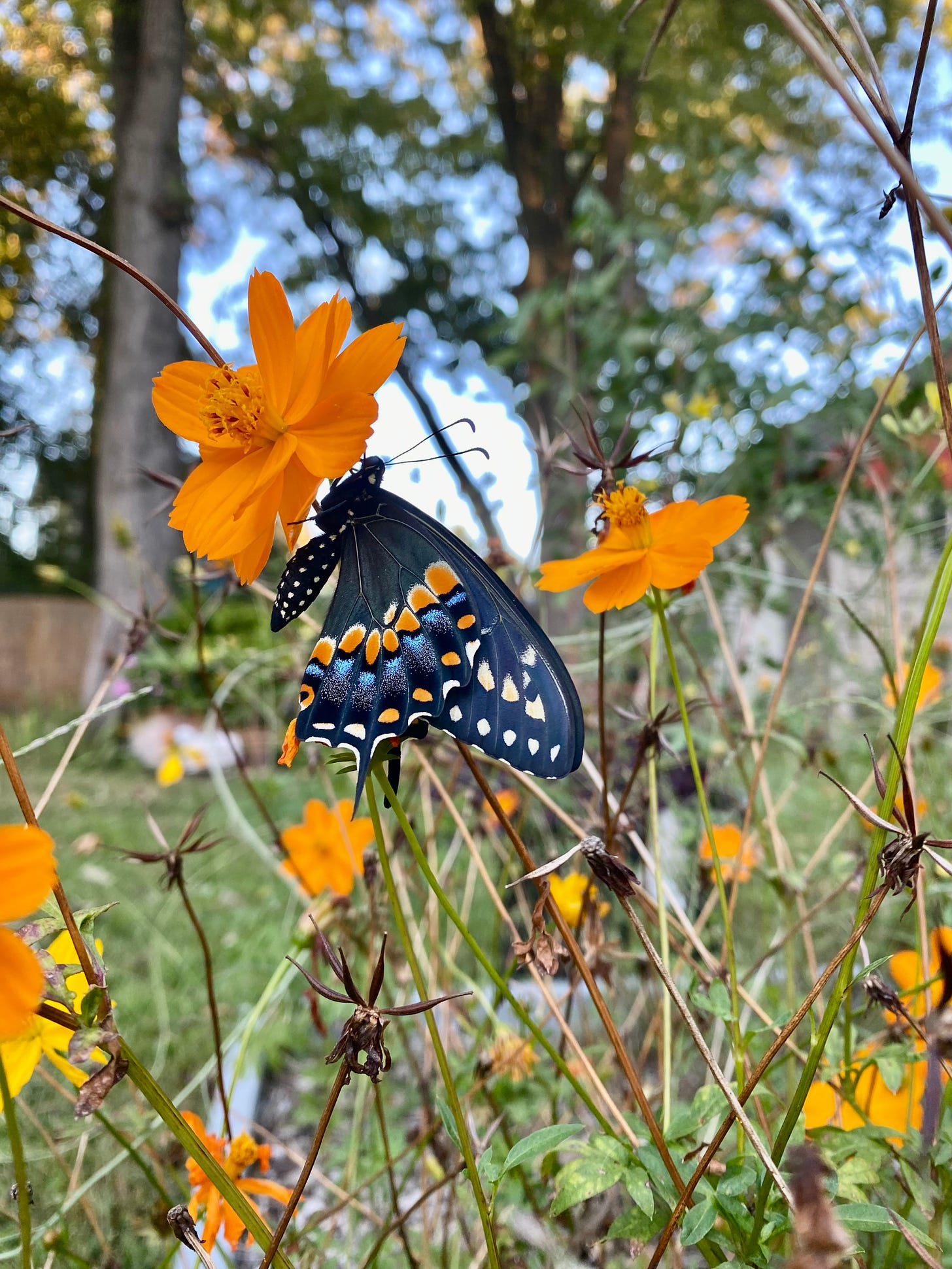
You live in a magic world, E. And your writing captures it with an equal magic. Thanks for this. “Utterly butterfly” is my favorite phrase in this essay. So perfect. See? You have the ear of a poet!
I wonder if the Earth is camouflaged in the cosmos? Thank you for the beautiful story and photos!